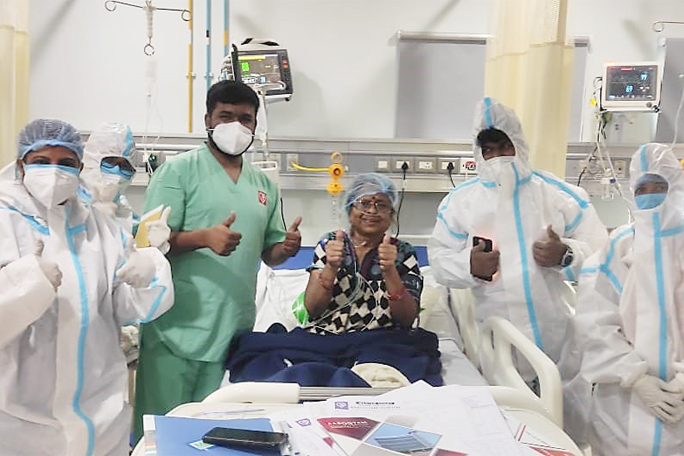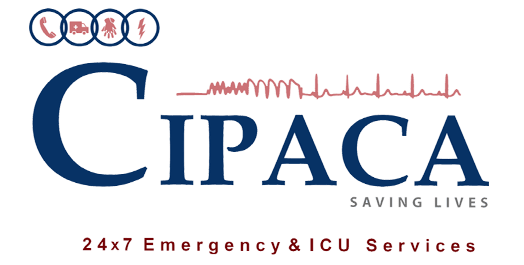Transformation of Rural Critical Care 

There is always a dire need for critical care in India. There are numerous hospitals in India that run without ICUs, thus creating a gap in the delivery of critical care to the citizens of India in times of unpredictable medical emergencies.
This mission to bridge the gap between rural & urban critical care services is boosted by CIPACA's FICCM course which is a Fellowship programme for young doctors who wish to be trained in rural critical care. The program makes them industry-ready to serve the community at the rural level with the commitment that coincides with our belief "to make critical care services accessible, affordable & efficient for rural India".
Being one of our successful candidates from our first batch of FICCM Fellowship Programme, I share my thoughts today standing on the Convocation stage on how getting trained under this course had changed my life. It's a proud moment for me since it was my life-long goal to work in ER/Casualty. However, the road towards this was not a cakewalk. After roaming around looking for suitable opportunities to complement my MBBS degree, it was like fate shining on me when I came across this FICCM Course by CIPACA. At first, I was told that I will be receiving practical patient handling training, more than theoretical knowledge. After being trained professionally, I expressed my gratitude towards Dr Raja for giving me such hands-on training that cultivated my quality improvement. However, things were still cloudy for me when I was asked to go & work at one of our centres at Batlagundu. So far, I had only worked in 2 hospitals in Batlagundu with CIPACA'S intervention into DMS Hospital, the scenario started taking a different shape under their constant support & guidance through our Tele-ICU supervision.
Earlier the patients would often be referred due to lack of availability of proper ICU or emergency care services which would often create a crisis for the patient & their family during the times of Golden Hour as it would often take forty-five minutes for the patient to reach a community hospital or a speciality hospital. However, all this would consume time & when a patient is in a critical situation, it is the time that they can't afford to spend recklessly. I realised the importance of time as well as CIPACA'S role in changing the scenario there with this continuous dedication & passion towards serving the community at large, slowly I got confident (thanks to the training that I had received) in saving more & more lives in or around Batlagundu. It is my firm belief that if CIPACA's services are made available in all rural centres then we can save more patients, the ratio could be 9 out of 10 as well!
For example, a 14-year-old boy came to DMS at 2 AM with nose and mouth bleed, but at that time conducting investigations was not possible so I did all the basic routine tests and contacted the CIPACA team and asked them to check whether it was a snake bite or not. CIPACA team quickly identified it as a snake bite and because of the guidance and the orders that I could carry on with the treatment and wooden 6 hours the patient was revived. This made me happy and proud that I could revive the patient and the patient family were also happy. If our ICU would not have been there, then such efficient & effective ER services would not have been available & the patients would have been referred to higher centres & when that comes into consideration, patient status, cost factors, transportation also comes into the picture but we at CIPACA, make it possible, that too at an affordable cost. With our services, we can at least settle 16-20% of the patients in the hospital itself.
If the patient is referred & taken by an ambulance, it results in the wastage of time which can also lead to an adverse impact on the patient lives but if we revive the patient on spot then time that could have been wasted could be saved. I believe that CIPACA's services should be set in all the villages surrounding Batlagundu.
Previously, the sick cases would often be referred out but now because of CIPACA coming into the picture, surgeons are referring cases to their ICU & Emergency Ward which is saving a lot of expenditure. After seeing our constant efforts in saving patients' lives & the patient satisfaction that we had received at DMS, even the hospital authorities also started expanding the overall hospital's ecosystem by introducing new equipment & establishing better infrastructure to improve & support our team CT, ABG etc.
I feel emotionally & financially stable after extending my support to patients which have moved me deeply & nurtured my ability to serve the community. My younger brother has also finished MBBS and he might also join the same course & become a part of this journey with CIPACA.

CIPACA strives to provide the best emergency care and ICU services to patients across hospitals of different types. We set up, maintain and manage ICUs in compliance with international standards.
Quick Links
Call Us
823 823 823 3
Address
S.No.705/5a3,
Padasalai
1st Street [NRI Layout],
Panaiyur, Chennai - 600119
Padasalai
1st Street [NRI Layout],
Panaiyur, Chennai - 600119
Mail Us